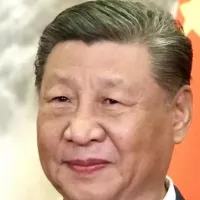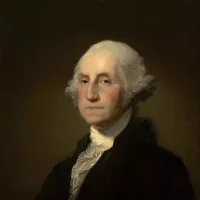Chinese Taipei is the designation used for teams and delegations representing Taiwan (Republic of China) in many international events and organizations. This term is primarily used for political reasons due to the complex relationship between Taiwan and the People's Republic of China. The designation allows Taiwan to participate without explicitly using its official name or symbols, avoiding potential objections from China, which claims Taiwan as a province.
1945: End of Japanese Rule in Taiwan
In 1945, Japanese rule in Taiwan, which began in 1895, ended with Japan's surrender at the end of World War II.
1949: End of Chinese Civil War and Nationalist Retreat to Taiwan
In 1949, the Chinese Civil War concluded, leading the nationalist Republic of China government to retreat to Taiwan.
1954: IOC recognizes both PRC and ROC
In 1954, the International Olympic Committee (IOC) recognized both the People's Republic of China (PRC) and the Republic of China (ROC) Olympic Committees.
1955: Exclusion of Islands in Defense Treaty
In 1955, a defense treaty excluded other islands or archipelagos under the control of the Republic of China, such as Kinmen and the Matsu Islands.
1958: PRC withdraws from IOC
In 1958, the PRC withdrew its membership from the IOC and nine other international sports organizations in protest against the two-Chinas policy.
1960: Formosa Used at the Summer Olympics
In 1960, the name "Formosa" was used to represent Taiwan at the Summer Olympics.
1964: Taiwan Used at the Summer Olympics
In 1964, the name "Taiwan" was used at the Summer Olympics.
1968: Taiwan Used at the Summer Olympics
In 1968, the name "Taiwan" was used at the Summer Olympics.
1971: People's Republic of China Replaces Republic of China at UN
In 1971, the People's Republic of China replaced the Republic of China as the exclusive legitimate representative of "China" at the United Nations, leading to a growing support for the use of "Taiwan" in place of "China" to refer to the Republic of China.
1971: WHO Participation
Since 1971, Taiwan has participated as an invited guest in the World Health Organization (WHO) under the name of Chinese Taipei.
1975: PRC Applies to Rejoin IOC
In 1975, the PRC applied to rejoin the IOC as the sole sports organization representing the whole China.
1976: Killanin Establishes a Commission
Following the 1976 Montreal Olympics, IOC President Lord Killanin established a commission to examine the issue of "Two Chinas."
1976: ROC Withdraws from Summer Olympics
In 1976, the ROC team, competing under the name of Republic of China at the previous Olympics, was refused the right to represent itself as the "Republic of China", or use "China" in its name by the government of the host country, Canada, at the Summer Olympics and withdrew from the event.
January 1, 1979: Definition of "Taiwan" in Taiwan Relations Act
On January 1, 1979, The United States officially defines the term "Taiwan" to "include...the islands of Taiwan and the Pescadores...and the governing authorities on Taiwan recognized by the United States as the Republic of China.
April 1979: 81st IOC Session
In April 1979, at the 81st IOC Session in Montevideo, the IOC officially recognized the Olympic Committee of the PRC while continuing to acknowledge the Olympic Committee based in Taipei, though problems relating to names, anthems and flags remained.
October 1979: IOC Executive Board Meeting in Nagoya
In October 1979, during the IOC Executive Board meeting held in Nagoya, the Olympic Committee in Beijing was designated as the Chinese Olympic Committee, while the Olympic Committee in Taipei was designated as the Chinese Taipei Olympic Committee.
November 1979: ROC Protest Against Nagoya Resolution
From November 1979, the ROC Olympic Committee and Taiwan's IOC member, Henry Hsu, filed lawsuits against the IOC for annulment of the Nagoya Resolution.
November 1979: Approval of the Nagoya Resolution
In November 1979, the Nagoya Resolution was approved by the IOC members, which designated the Olympic Committee in Beijing as the Chinese Olympic Committee and the Olympic Committee in Taipei as the Chinese Taipei Olympic Committee.
1979: Nagoya Resolution
In 1979, the text of the IOC's Nagoya Resolution used the name Taipei de Chine suggesting the state meaning of "Chinese" in French.
1980: Boycott of Winter and Summer Games
In 1980, Taiwanese officials boycotted the Winter and Summer Games in protest of not being allowed to use the ROC's official name, flag and national anthem.
1980: IOC Amends Olympic Charter
In 1980, the IOC amended the Olympic Charter allowing all National Olympic Committees (NOCs) to use delegation flags and anthems, instead of national ones.
1981: Agreement on Name
Before signing the agreement between the IOC and the Chinese Taipei Olympic Committee in 1981, representatives of two committees decided that the French name need not be stated, and only the English name would be used in the future IOC official documents.
1981: ROC Government Accepts "Chinese Taipei" Name
In 1981, the ROC government formally accepted the name "Chinese Taipei".
1981: Lausanne Agreement
On March 23, 1981, the Lausanne Agreement was signed, specifying the name, flag, and emblem of the Chinese Taipei Olympic Committee (CTOC).
1991: Fewer Taiwanese Identify as Taiwanese
In 1991, only 13.6% of citizens in Taiwan saw themselves as Taiwanese, not Chinese. This is in stark contrast to later years, where the percentage of people who identify as Taiwanese increased dramatically.
2004: Movement to Change Team Name to "Taiwan"
Around the time of the 2004 Summer Olympics, a movement began in Taiwan to change media references of the ROC team to "Taiwan", reflecting the growing Taiwanese identity.
2008: Chinese State Media uses Agreed Upon Translation
During the 2008 Summer Olympics, Chinese state media used the agreed-upon Zhōnghuá Táiběi both internationally and in domestic press.
2015: "Other non-specified areas" in UN Population Projections
In 2015, the United Nations published population projections for each nation, with nations grouped under geographic area; the East Asia group contained an entry named "Other non-specified areas" referring to Taiwan.
2016: Taiwanese National Identity Surges
In 2016, a significant shift in national identity was observed in Taiwan, with over 80% of citizens identifying as Taiwanese rather than Chinese. This change reflects a growing Taiwanese national identity and a re-evaluation of historical labels.
2017: Criticism of "Chinese Taipei" Label at Universiade
In 2017, the use of the "Chinese Taipei" label faced renewed criticism during the run-up to the Summer Universiade hosted in Taiwan. An English-language guide was criticized for avoiding the name "Taiwan" even when referring to geographical features.
February 2018: Referendum Proposal for "Taiwan" Name
In February 2018, civic organizations proposed a referendum to change Taiwan's name to "Taiwan" for international sports events, including the 2020 Tokyo Olympics. This proposal influenced the EAOC to revoke Taichung's right to host the East Asian Youth Games.
2018: Referendum on Name Change Rejected
In 2018, a nationwide referendum on changing the formal name from 'Chinese Taipei' to 'Taiwan' for representation in the Olympic Games was rejected.
2020: Differing Media References During 2020 Summer Olympics
During the 2020 Summer Olympics, most TV channels referred to the ROC as Team Zhonghua, while some preferred Team Taiwan, showing a division in media representation.
2020: Shift in Term Usage by State Media
During the 2020 Summer Olympics, state media began using Zhōngguó Táiběi domestically 93% of the time.
2020: Proposed Referendum for 2020 Tokyo Olympics
In February 2018, a referendum was proposed for the 2020 Tokyo Olympics, asking if the nation should apply under the name of "Taiwan" for all international sports events. The IOC disapproved the altered name and warned the Chinese Taipei Olympic Committee that it may disbar Taiwan from Olympic competitions.
2021: Rejection of 2024 Summer Olympics Proposal
In 2021, a proposal for the 2024 Summer Olympics was rejected by Taiwan's CEC due to concerns about its applicability under the Referendum Act of Taiwan.
2022: Controversy at 2022 Winter Olympics
During the 2022 Winter Olympics opening ceremony, there was a discrepancy in the naming of Taiwan's delegation, with the broadcast cutting away to a clip of General Secretary of the Chinese Communist Party Xi Jinping when Taiwan's delegation paraded as Zhōnghuá Táiběi.
2024: Proposal for 2024 Summer Olympics
Another proposal for the 2024 Summer Olympics was submitted to Taiwan's CEC in 2021.
Mentioned in this timeline
The United States of America is a federal republic located...

Xi Jinping is the paramount leader of China holding the...
Hong Kong is a densely populated special administrative region of...

The Chinese Civil War was a conflict between the Kuomintang...
World War II - was a global conflict between the...
China officially the People's Republic of China is an East...
Trending

55 minutes ago Kevin Fiala injured during Switzerland vs. Canada Olympics game, stretchered off ice.
55 minutes ago Bride integrates Bad Bunny Super Bowl halftime into wedding; Republicans react to performance.

55 minutes ago Brewers sign Luis Rengifo to a one-year deal, adding infield depth.

2 hours ago Presidents' Day Sales: Early Deals on Amazon, Apple, Carhartt, and Sealy products.
2 hours ago Kazakhstan Faces Scrutiny Over Extradition and Asylum Decisions Involving Russian Activists

2 hours ago Yuma Kagiyama aims for gold at 2026 Winter Olympics with quad flip.
Popular

Kid Rock born Robert James Ritchie is an American musician...
The Winter Olympic Games a major international multi-sport event held...

Barack Obama the th U S President - was the...

XXXTentacion born Jahseh Dwayne Ricardo Onfroy was a controversial yet...

Pam Bondi is an American attorney lobbyist and politician currently...

Michael Joseph Jackson the King of Pop was a highly...